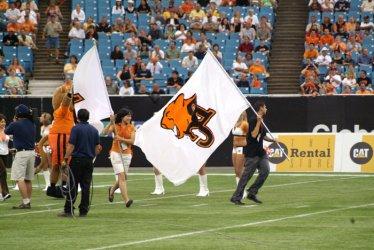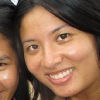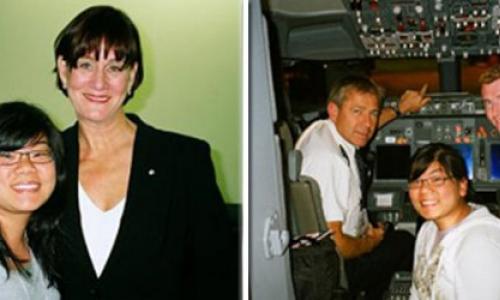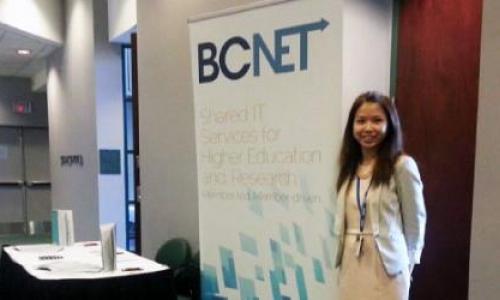
Susan Seto is a Communication Alumni who worked for BC Lions Football Club, BC Transmission Corporation and BC Lottery Corporation during her Co-op terms. After she graduated in 2008, her Co-op experience played a significant part in shaping her successful career.
During her Co-op terms, she worked in employee communications as well as promotional projects with the community. Her diverse experience with people and work made her more versatile after she graduated. She currently supervises and manages a national team at one of Canada’s biggest law firms.
I had a chance to chat with her about how her Co-op experience helped her with her career.
Why did you join Co-op and what year did you begin the program?
S: Other students would share their experiences about their Co-op program which made me more curious and determined to join. I remember attending a Co-op info session and signed up for the program right after that.
Before I joined Co-op, I had a lot of theoretical knowledge relating to the communications field but didn’t have much related work experience. I knew I wanted to gain more experience in the communications industry outside of the lecture halls and thought Co-op would be a great place to start.
What were some of the most valuable skills and lessons you took from the places you worked at during your Co-op work terms?
S: The Co-op terms I had provided me a set of diverse skills that I still make use of in my current position today including shaping my communications skills ranging from crafting the perfect press release to coordinating the production of a newsletter.
I am fortunate to have been exposed to these experiences during my undergrad. In addition to these skills, I was able to further develop my soft skills, which included expanding on my organizational and interpersonal skills and being able to work effectively as a team.
What advice do you have for current Co-op students to be successful in the program?
S: Be persistent, be open to trying new things and take advantage of every learning opportunity that comes your way.
Finding the first Co-op term is usually the most challenging. Like many new Co-op students, all I had on my resume was my experience working part-time at a coffee shop and I hoped that my volunteer experience and grades would override that and help me stand out. Determined to find my first Co-op, I applied to over 20 jobs and was shortlisted for numerous interviews. Interview after interview, I was being turned down and even thought about withdrawing from the program.
However, 10 interviews later, I was offered a fantastic Co-op opportunity working in the Community Relations Department at the BC Lions Football Club. I didn't know much about sports and had zero knowledge of football but all I knew was that I wanted to make the most of the opportunity.
It was a wonderful learning experience and I learned a lot about the communications and sports industry while having fun watching the football games from the sidelines at the same time.
Why did you volunteer when you were in university?
S: Volunteering provided me valuable experience and a greater perspective on what I wanted to do with my career and the direction I wanted to pursue after graduation. While I was at SFU, I volunteered as a news and events reporter for CJSF 90.1FM's women's show called IntraVenus
Along with a few other SFU students and staff, we decided to create a show exploring a variety of topics and current events relating to women and gender issues. Being involved in the initial creation of this show was an amazing and rewarding experience. It allowed me to make new connections and explore the field of journalism in greater detail while having fun at the same time!
How does volunteering help with the Co-op experience?
S: Having volunteer experience allows you to gain more experience in your field and make new connections in the industry. Volunteering allows you to find out what you like and what you don't like and also shapes the direction of where you want to go with your career path.
How did your Co-op coordinators help you find jobs?
S: The coordinators are an amazing asset to SFU's Co-op program and are always willing to help students get the most out of the program. They were always available to answer my questions and provide me feedback in all stages of the SFU Co-op process.
The SFU Co-op coordinators were helpful in providing me advice on my resume, cover letter and interview tips as well as general guidance on the communications field.
It's been a few years since you finished your last Co-op, how did your Co-op experience help you get to where you are today?
S: Co-op changed my life. Participating in the Co-op program provided me tremendous experience in preparation for the workforce after graduation.
Prior to Co-op, all I had was knowledge on the communications industry gained from textbooks and lecture slides. While the theoretical knowledge I had was useful, I wanted to gain more real life experience that would contribute to the success of my career.
The three Co-op terms I had were all different and provided me challenging projects that allowed me to try out various industries, ranging from sports to the entertainment gaming industry.
The program allowed me to shape the direction of where I wanted to go with my career and it provided me real life skills to add to my resume to stand out in the competitive communications industry.
Since graduating, Susan has also done work in design, member relations and continues to volunteer around her work schedule.















